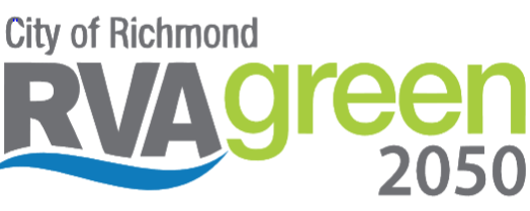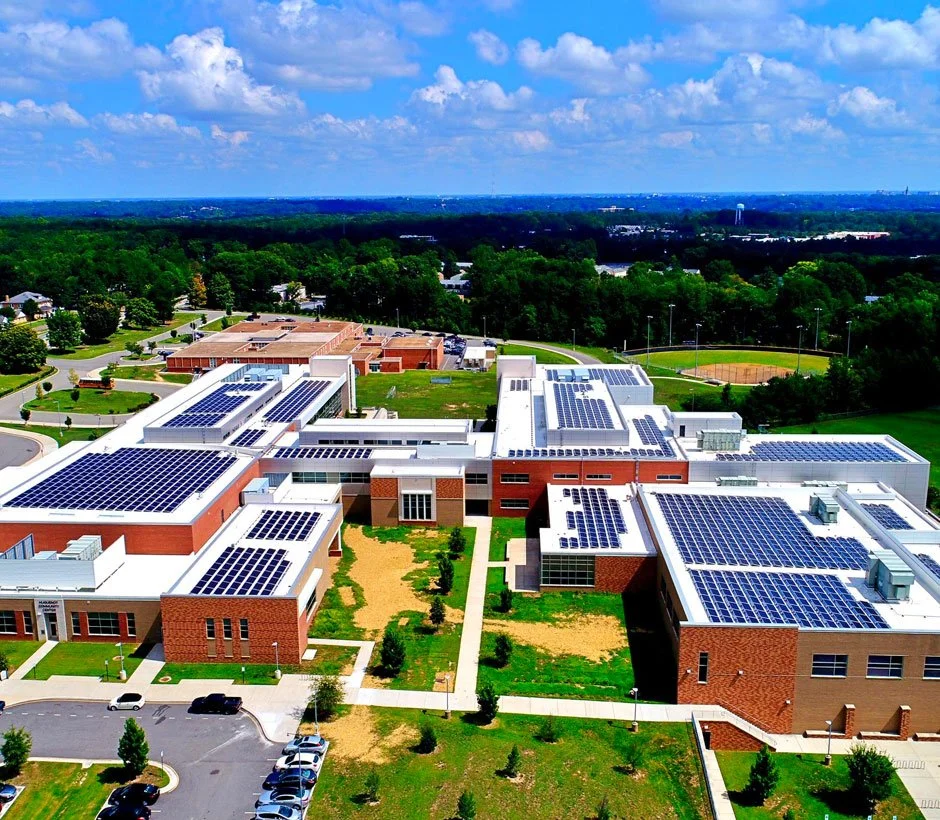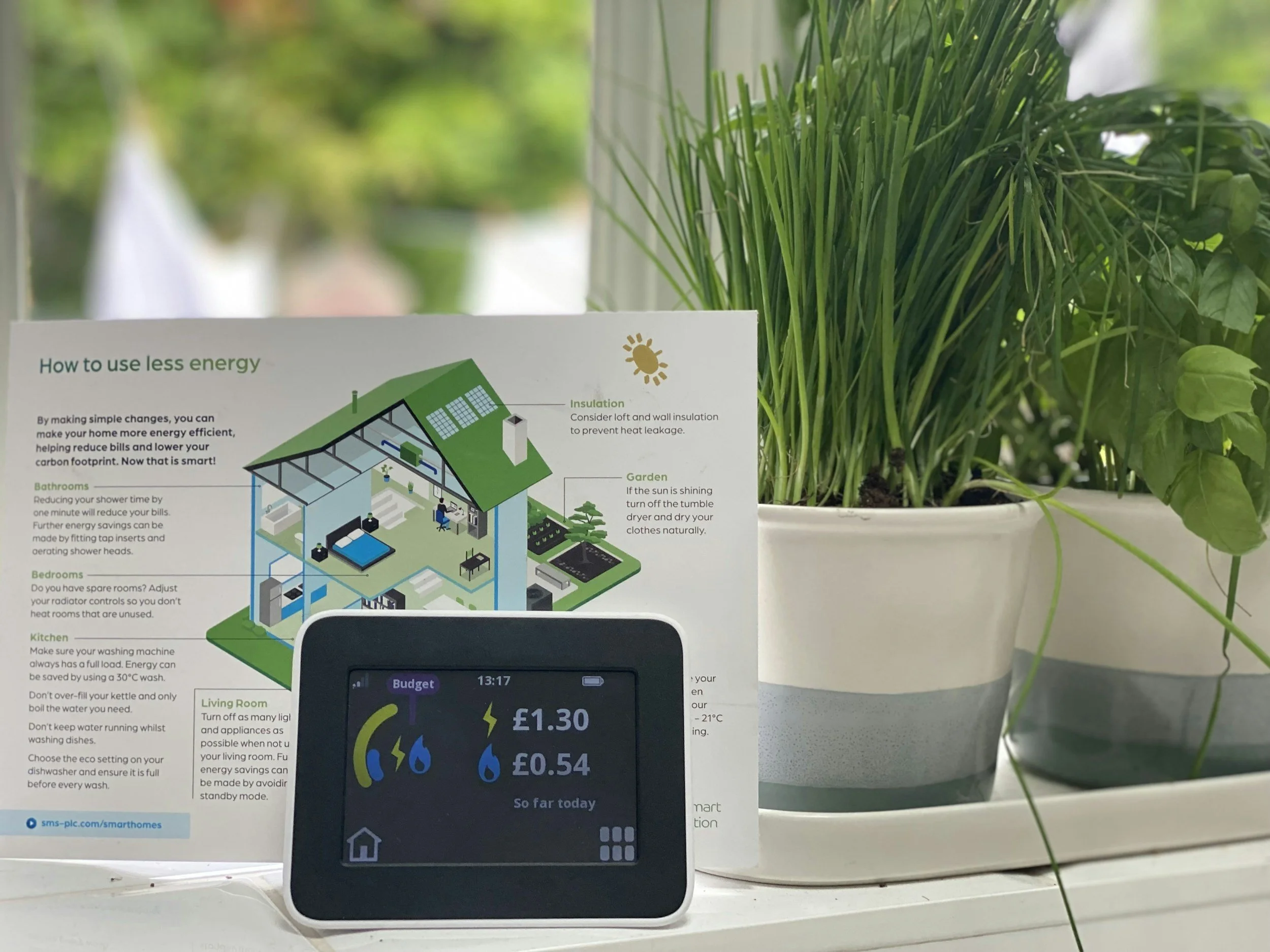
Clean Energy Hub
Welcome to your all-inclusive resource for how the City of Richmond is understanding, exploring, and adapting clean energy solutions for a sustainable future. The city is committed to harnessing the power of clean energy to create a healthier environment and empower residents to make informed energy choices. Explore the resources and information on this page to discover how to contribute to a sustainable energy landscape in the City of Richmond.
Learn More:
Solar Energy
Solar energy is energy harnessed from the sun and turned into usable forms of energy like electricity and heat. The City of Richmond is committed to providing equitable education and outreach to make homes and small businesses healthy, safe and affordable through solar installations while focusing on frontline communities reducing disproportionately high energy burden in these neighborhoods.
Solar Initiatives
Virginia Solar United Neighbors (VA-SUN) - Switch Together
We launched Switch Together to help you understand your solar options and save money. Switch Together Richmond is open for registrations. Join our newsletter to receive more Switch Together updates.
Richmond is pleased to support this program, which helps homeowners and small businesses secure a quality rooftop solar installation. The program also offers discounted prices for optional add-ons such as battery storage, and electric vehicle chargers.
Using group buying and the expertise of nonprofit Solar United Neighbors, Switch Together ensures that participants get a great deal and have the information needed to make an informed decision.
How does Switch Together work?
Switch Together organizes groups of residents who are interested in going solar, together. By organizing a group purchase for solar panels, Switch Together can get a better deal for everyone in the group.
1. Register: Sign up for free at SwitchTogether.com/Solar/Richmond Note: You will not receive any sales calls, nor will your information be shared with third parties.
2. Auction: A select group of vetted installers will compete in a bidding process. The most competitive bids for high-quality installations will determine the final group discount.
3. Personal recommendation: Upon registering, you will receive a personal recommendation based on your registration details. This offer will include your estimated costs, savings, and expected electricity generation.
4. You decide: Switch Together recommends accepting your personal recommendation as soon as possible to increase your chance of qualifying for the 30% solar tax credit, which begins phasing out after 2025. There’s no obligation to accept an offer if you sign up.
5. Installation: If you accept, the winning installer will contact you for a site survey and set an installation date.
Additional Solar Resources
-
Solar energy, with its potential for sustainable and clean power generation, is crucial in meeting these needs. However, global supply chain issues and reliance on foreign imports pose significant risks to our energy security. Recognizing this, Virginia is committed to developing strategic partnerships and investing in domestic solar manufacturing to reduce dependence on foreign sources.
https://www.energy.virginia.gov/renewable-energy/SolarPower.shtml
-
The Solar Energy Industries Association® (SEIA) is leading the transformation to a clean energy economy. SEIA works with its 1,200 member companies and other strategic partners to fight for policies that create jobs in every community and promote competition and the growth of reliable, low-cost solar power.
-
Solar for All is a federal grant program for states, territories, Tribal governments, municipalities and eligible nonprofits to expand the number of low-income and disadvantaged communities that have access to residential and community solar. The federal Solar for All grant program is managed by the Environmental Protection Agency (EPA) and authorized by the Greenhouse Gas Reduction Fund (GGRF) in the Inflation Reduction Act (IRA). The program aims to benefit communities by lower utility costs, boosting the clean energy workforce, and reducing emissions. Virginia received $156M in funding to implement a statewide Solar for All program.
https://energy.virginia.gov/renewable-energy/Solar-For-All.shtml
-
Project Sunroof puts Google's expansive data in mapping and computing resources to use, helping calculate the best solar plan for you. When you enter an address, Project Sunroof looks up the building in Google Maps and combines that information with other databases to create your personalized roof analysis. https://sunroof.withgoogle.com/#/p=0
-
-
-
Solarize Virginia is a community-based outreach initiative that reduces the cost and complexity of going solar. Managed by the Virginia nonprofit Local Energy Alliance Program (LEAP), Solarize uses a competitive bidding process to vet and select installers who offer discounted prices to program participants. Our 2025 installers are Convert Solar and Solar Energy World.
LEAP delivers energy-efficient solutions in Virginia to make homes safer, healthier, and more affordable while reducing energy usage and mitigating climate change.
Solarize Virginia began in 2014 as a community-based outreach initiative to bring solar power to people in their homes and businesses throughout Virginia through our Solarize campaigns. Our program is executed in partnership with local governments, and other supporters. This campaign closes July 15th.
For more information please visit https://www.solarizeva.org. -
SolSmart is a national program that helps cities, towns, counties, and regional organizations become solar energy leaders.
The SolSmart program has two key parts. First, the program provides no-cost technical assistance to help local governments follow national best practices to expand solar energy use in their jurisdictions. Second, it recognizes and celebrates these communities with SolSmart designations of Platinum, Gold, Silver, and Bronze.
In 2017 Richmond received a designation of SolSmart silver and received special recognition for our work on solar permitting and inspection. Richmond was designated as SolSmart Gold in 2021 and well on our way to SolSmart Platinum.
For more invormation visit https://solsmart.org/designee/richmond-2.
Solar Permitting
-
Permit Applications
For residential or commercial solar projects, applicants should use the Electrical Permit Application. If your permit application requires a plan submission, you must use a thumb drive or CD. No paper submissions will be accepted. As a SolSmart Gold designee, the City of Richmond is committed to providing a timely review of solar PV permit applications. Timelines & details are on the Permits & Inspections webpage.Application Checklist
For helpful information, refer to the Electrical Handout Checklist and the Electrical Plan Review Requirements.Permit Fees
Refer to the Permits Fee Schedule for the electrical permit fee. It is based on the cost of the solar PV system.Submit Permit Application
To file the permit application, submit your information and payment in person at the City's Bureau of Permits and Inspections, City Hall, 900 E. Broad St. Hours: M-F 8:00 a.m.- 5:00 p.m. Call (804)646-4169 with questions. -
Permitted Accessory Use
In the City of Richmond, property owners are able to install solar panels as an accessory use on the property in all zoning districts. Solar panels are considered an accessory use and relevant setbacks will be imposed. The City of Richmond allows solar panels as accessory mechanical applications (just like an A/C unit or something similar) in the side yard or on the roof.Accessory structures cannot be in the front of a dwelling (in the front yard) and, for this reason, would not be permitted at that location if it was the only viable location to access the sun. In these situations, it is possible to seek special approval from City Council.
Advisory Determination: Accessory Uses Solar Panels
This Letter of Determination clarifies that solar panels are an accessory use to a permitted primary use building or structure and permitted by right in all zoning districts.Accessory Use Definition
Per Zoning Sec. 30-1220, accessory use means a use of land or use of a structure or building for purposes incident and subordinate to the principal use of the premises.Old and Historic Districts
For property within the city's Old and Historic Districts, a Certificate of Appropriateness from the Commission of Architectural Review is required for any exterior changes including the installation of solar panels that are visible from a public place or a public right of way which includes streets, sidewalks, and alleys.The Commission has guidelines for the installation of solar panels in Chapter 3 of its Handbook and Design Review Guidelines for Old and Historic Districts of Richmond Virginia which emphasize locating the panels to be minimally visible from the public right of way and installing the panels in a method that is reversible and does not compromise the historic integrity of the structure or the historic district. (See Chapter 3, Building Elements, Roofs)
Information about the guidelines, the application process, and how to determine if a property is within a City Old and Historic District can be found on the Commission of Architectural Review website.
Special Use Permit Required
If solar panels are providing off-site power, they are not considered an accessory use. In that situation, a special use permit is required. For more information about the special use permit process, go to the Land Use Administration website.
Solar Projects
-
The City of Richmond is considering a project to repurpose the capped landfill located at 3800 East Richmond Road into a solar array and pollinator meadow. The City operated a landfill on this site from the 1960’s until September 1983 when it was closed and capped.
Currently, the area around the capped landfill operates as a debris collection site and recycling convenience center for the City’s Department of Public Works (DPW) and Parks, Recreation, and Community Facilities (PRCF) and Richmond residents. Given the restricted uses of the capped section, it is a good candidate for a solar photovoltaic energy system and pollinator meadow.
-
The Nine Mile Road Solar project is an example of Dominion Energy’s commitment to provide reliable, affordable and increasingly clean energy that powers our customers every day. The solar facility will generate about 2 megawatts (MW) of carbon-free energy, serving approximately ~500 Richmond Region homes at peak output. Being located on top a former landfill, the project will also support the company’s goals of using previously developed lands for generation projects. All generating electrical equipment on the site will be constructed above-ground for continued protection of the contained subsurface material.
Questions about solar? Email us at rvagreen@rva.gov
Energy Efficiency
Energy efficiency reduces air and water pollution, conserving natural resources which decrease greenhouse gas emissions. It is the act of using less energy to achieve the same level of service or output. The City of Richmond is dedicated to not only lead by example in our municipal owned buildings but educate our residents on how they can use energy efficiency methods to not only lower their energy bills but also reduce community greenhouse gas emissions.
Dominion Energy offers programs, incentives and tools to make it easier to manage energy costs, including:
Energy-Saving Programs: Simple ways to reduce monthly costs.
Usage Tracking Tools: Empower households to monitor and manage energy use.
Assistance Programs: Flexible payment options for those experiencing hardship.
Dominion Energy provides several options for reducing energy bills. Learn more here.
Virginia Energy provides a customized tool that lists energy programs and incentives. Learn more here.
Energy Efficiency Resources
Energy Efficiency & Conservation Block Grant (EECBG)
Amount Awarded: $262,500
Lead: Richmond Office of Sustainability
Through the Energy Efficiency and Conservation Block Grant (EECBG) Program, the City of Richmond's Office of Sustainability is partnering with the Office of Housing and Community Development, the Department of Public Utilities, and the Office of Emergency Communications to provide energy efficiency assistance to our low-income residents in alignment with on-going programs prioritizing home safety, lead pipe removal, and flood resilience.
Virdiant, a local non-profit that provides community energy services, will bring the necessary energy expertise to perform home energy audits, install energy saving fixtures, and identify energy efficiency opportunities and incentives tailored to each homeowner. Virdiant will serve roughly the same 60 single-family homes receiving repairs through HCD’s Healthy Homes Program, providing “test in” energy audits to identify and prioritize opportunities to maximize energy burden reductions obtained by funded repairs.
Learn more about the Energy Efficiency and Conservation Block Grant (EECBG) Program.
Learn more about the Healthy Homes Project
Partners: Richmond Department of Housing & Community Development, Richmond Department of Public Utilities, Richmond Office of Emergency Communications, and Virdiant
A safer, brighter, and more connected city.
Department of Energy (DOE) Energy Futures Grant
Amount Awarded (on hold): $500,000
Lead: PlanRVA
The Energy Future Grants (EFG) will support a multijurisdictional planning effort to develop a deployment-ready “Energy Savings Action Hub” program to serve households in the Greater Richmond Area. The Energy Savings Action Hub program will provide a one-stop-shop for navigating home energy retrofit assistance, including comprehensive home energy audits, referrals to vetted contractors, access to all applicable economic incentives, and applications for project financing, as needed. Once the Hub is created, the collaborative will then be eligible to apply for implementation dollars that will enable the group to roll the project out within each community.
Learn more about the Energy Futures Grant.
Partners: Virdiant, Henrico County, Chesterfield County, Town of Ashland, Chickahominy Tribe Eastern Division, and project:HOMES
DOE National Renewable Energy Laboratory (NREL) Communities LEAP Grant - $50,000
Amount Awarded: $50,000
Lead: Climate Community Collaborative
The DOE Communities LEAP (Local Energy Action Program) aims to facilitate sustained community-wide economic and environmental benefits primarily through DOE’s clean energy deployment work. This opportunity is specifically open to low-income, energy-burdened communities that are also disadvantaged and/or are experiencing direct economic impacts from a shift away from historical reliance on fossil fuels. Under Communities LEAP, DOE matches selected communities with technical assistance providers who assist them with bringing their clean energy planning and economic development vision to life.
Learn more about the Communities LEAP Program.
Partners: Climate Community Collaborative, Chamber RVA
Questions about grants? Email us at rvagreen@rva.gov
Smart Infrastructure
Smart infrastructure refers to physical infrastructure systems, like transportation, energy, or water, that are enhanced with digital technologies to improve efficiency, sustainability, and responsiveness. It involves using sensors, data analytics, and automation to monitor, manage, and optimize the performance of these systems.
Smart Cities Initiative
A safer, sustainable, and more connected city.
The City of Richmond, along with community partners, are working to develop proof of concept initiatives to advance climate mitigation and resilience through innovative solutions. Some technologies being considered for data collection to inform public services improvements include;
Safety through LED lighting upgrades
Transportation efficiencies
Environmental sensors
Streetlight Upgrades
City Council adopted the *RVAgreen Plan prioritizing full conversion by 2026. The Plan was developed in full partnership with the community. 8% of ornamental lights have been converted to LED (these are the most expensive fixtures with a lower rate of return). For FY25/26, energy savings in the utility budget as a result of LED retrofits will go towards additional LED conversions. To learn more about cities streetlighting upgrade plan visit the JET projects page.
Questions about smart infrastructure? Email us at rvagreen@rva.gov
The Joint Energy Team (“JET”) is the governing body for energy management for municipal operations facilitated by the Energy Program Manager. Members include DCAOs, Chiefs, and Department Directors or a designated Department representative(s). The JET was established in FY24 to provide the mechanism needed for all departments to share in the responsibility of energy management and partner in strategic planning for all related initiatives.
The JET currently stands at over 100 decision-makers representing all City of Richmond departments, offices, and divisions and is fast-tracking our clean energy future through efficiency measures, culture change, capacity-building, education, and innovation. The Joint Energy Team (“JET”) breaks down departmental silos and fast-tracks sustainability initiatives to advance our clean energy future.
JET Committees
Each year the City of Richmond uses significant amounts of energy in forms such as electricity, natural gas, diesel fuel, and gasoline in the operations of municipal buildings and facilities, services, utility systems, vehicles, and equipment. Annual expenditures for energy exceed $25M per year.
Gains in efficiency and investment in renewable energy can yield significant financial and environmental benefits, and strategic management of these resources enables the cost-effective delivery of City services to the public. Energy management decisions affect all departments.
The Joint Energy Team (“JET”) provides the mechanism needed for all City departments to share in the responsibility of energy management and partner in strategic planning for all initiatives related to buildings, vehicles, and energy.
Questions about JET?
Email Dawn Oleksy at dawn.oleksy@rva.gov.









